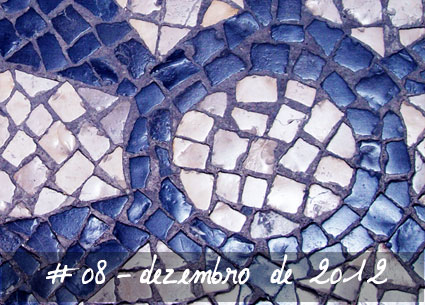LEAVING THE LUNATIC ASYLUM: THE CRISIS OF THE CITY AND THE EMERGENCE OF BEING IN ENSAIO SOBRE A CEGUEIRA BY JOSÉ SARAMAGO
DOI:
https://doi.org/10.11606/issn.2175-3180.v4i8p26-37Keywords:
City, Portuguese Fiction, José Saramago, Post-modernismAbstract
The novel Ensaio sobre a Cegueira (1995), by José Saramago, without explicit marks of time or space, the reader come across a baffling and unpredictable epidemic of “white blindness” in an anonymous city. However, there´s no denying that some contemporary marks show a world similar to the reader´s world: such as cars, impatient drivers, traffic lights, luxurious buildings and constructions. It´s necessary to comprehend the city and all his senses (before and after the epidemic) and underline the new and extraordinary light will produce fear and break, that is, a barrier to urban alienation - in other words, a criticism of the notion of progress. We´ll try to understand how the Portuguese writer has utilized these data through an ontological and postmodern dominant to analyze the human being and his connection with a world marked by a state of blindness, and then, through the fiction, to establish his questionings based on ethic and existence.
Downloads
Downloads
Published
Issue
Section
License
Copyright (c) 2012 Rodolfo Pereira Passos

This work is licensed under a Creative Commons Attribution-NonCommercial 4.0 International License.
O(s) autor(es) declara(m) automaticamente ao enviar um texto para publicação na revista Desassossego que o trabalho é de sua(s) autoria(s), assumindo total responsabilidade perante a lei nº 9.610, de 19 de fevereiro de 1998, no caso de plágio ou difamação, obrigando-se a responder pela originalidade do trabalho, inclusive por citações, transcrições, uso de nomes de pessoas e lugares, referências histórias e bibliográficas e tudo o mais que tiver sido incorporado ao seu texto, eximindo, desde já a equipe da Revista, bem como os organismos editoriais a ela vinculados de quaisquer prejuízos ou danos.
O(s) autor(s) permanece(m) sendo o(s) detentor(es) dos direitos autorais de seu(s) texto(s), mas autoriza(m) a equipe da Revista Desassossego a revisar, editar e publicar o texto, podendo esta sugerir alterações sempre que necessário.
O autor(s) declara(m) que sobre o seu texto não recai ônus de qualquer espécie, assim como a inexistência de contratos editoriais vigentes que impeçam sua publicação na Revista Desassossego, responsabilizando-se por reivindicações futuras e eventuais perdas e danos. Os originais enviados devem ser inéditos e não devem ser submetidos à outra(s) revista(s) durante o processo de avaliação.
Em casos de coautoria com respectivos orientadores e outros, faz-se necessária uma declaração do coautor autorizando a publicação do texto.
Entende-se, portanto, com o ato de submissão de qualquer material à Revista Desassossego, a plena concordância com estes termos e com as Normas para elaboração e submissão de trabalhos. O não cumprimento desses itens ou o não enquadramento às normas editoriais resultará na recusa do material.


